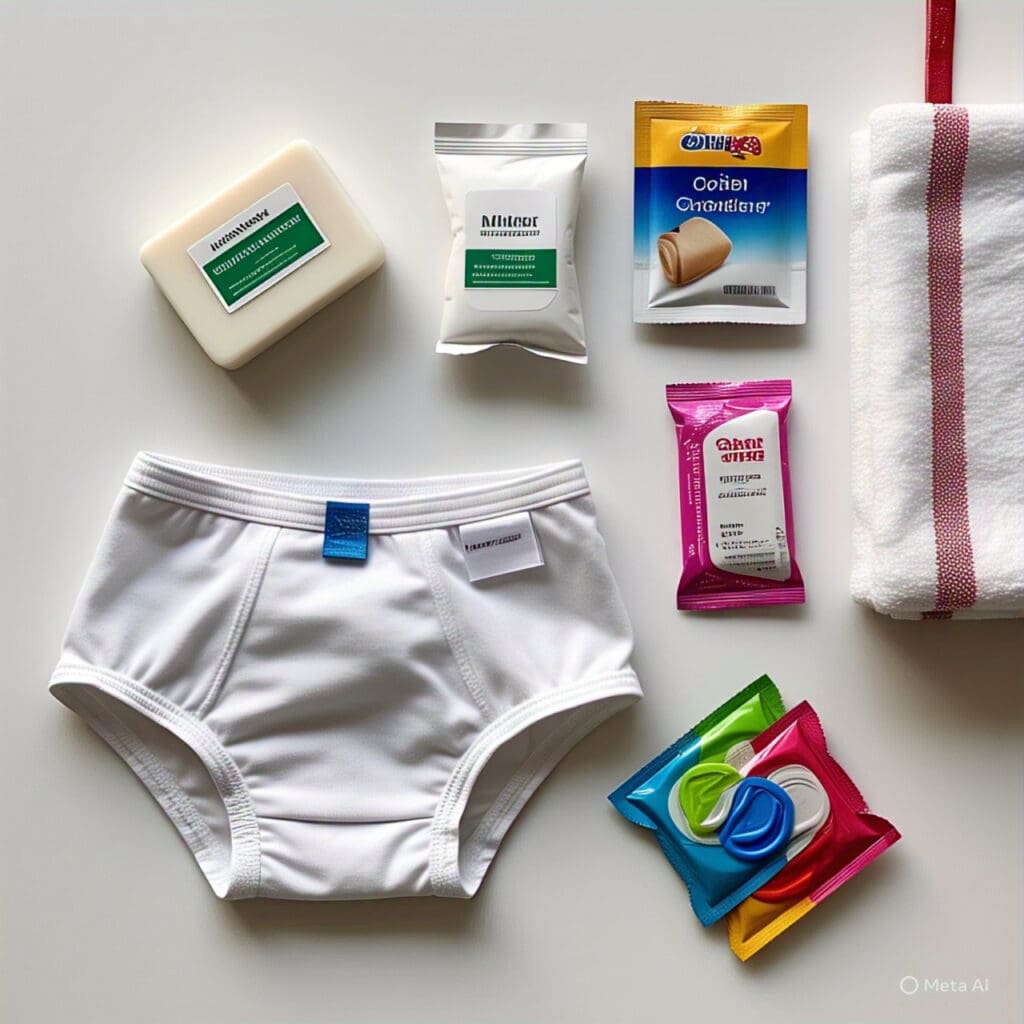Introduction
Sexual hygiene is a topical issue that is very important to our wellbeing as adults. Still, it is underdiscussed, especially in many African communities, where sexual health education remains a sensitive topic.
It is believed that poor sexual hygiene doesn’t just lead to discomfort—it can expose individuals to infections, affect fertility, and impact emotional intimacy.
In this article, we will discuss sexual hygiene as it is, providing a practical, science-based guide to understanding and practicing sexual hygiene, helping you stay safe, healthy, and confident in your intimate life.

What Is Sexual Hygiene?
A good place to start is providing a clear definition of the term “sexual hygiene”. The phrase Sexual hygiene refers to the set of personal care practices that maintain the cleanliness and health of the genital area before, during, and after sexual activity.
This is not just about staying fresh—it’s about protecting yourself and your partner(s) from infections, irritations, and long-term complications.
It is important to note that proper sexual hygiene applies to all genders, all ages, and all types of sexual activity.
Why Is Sexual Hygiene Important?
Maintaining sexual hygiene is crucial because it:
- Prevents infections: Such as yeast infections, urinary tract infections (UTIs), and sexually transmitted infections (STIs).
- Reduces odour and discomfort: Poor hygiene can lead to foul smells, itching, and skin irritation.
- Improves sexual experience: Cleanliness fosters confidence, comfort, and better intimacy.
- Promotes reproductive health: Especially for women, poor genital hygiene can lead to fertility issues.
Daily Genital Hygiene Tips
For Men
- Wash daily with clean water: Use lukewarm water to clean the penis, including under the foreskin if uncircumcised. Avoid strong soaps.
- Dry properly: Moisture encourages bacterial growth. Pat dry with a clean towel.
- Wear breathable underwear: Cotton is ideal. Change your underwear daily.
- Trim pubic hair regularly: This reduces sweat and odour buildup.
For Women
- Clean the vulva, not the vagina: The vagina is self-cleaning. Focus on the outer parts using mild soap and warm water.
- Avoid douching: It disrupts natural pH and increases risk of infections.
- Wipe front to back: After urinating or defecating to prevent bacteria transfer.
- Change pantyliners or pads often: Poor menstrual hygiene increases infection risk.

Before Sex: Hygiene Practices to Observe
- Shower or wash up: Ensure both partners are clean to reduce bacteria transmission.
- Trim nails and hands: Dirty nails can introduce germs during foreplay or penetration.
- Brush your teeth (with caution): Especially if oral sex is involved, but avoid immediately before sex to prevent gum bleeding which can increase STI risk.
- Check for infections or discomfort: If you or your partner has symptoms like unusual discharge, itching, or rashes, it’s best to postpone sex and seek medical advice.
During Sex: Clean Habits to Practice
- Use protection: Condoms and dental dams reduce STI risk and prevent pregnancy.
- Stay hydrated: Especially during extended sessions to avoid dehydration and muscle cramps.
- Avoid switching between anal and vaginal sex without cleaning: This can transfer harmful bacteria and cause infections.
- Use clean sex toys: Sanitize them before and after use. Don’t share toys unless properly cleaned or covered with a new condom.
After Sex: Hygiene Checklist
- Urinate after sex: Particularly for women, this flushes out bacteria and reduces the risk of UTIs.
- Clean your genitals gently: Don’t scrub; just use warm water or mild soap.
- Wash hands and sex toys: Don’t skip this essential step.
- Change underwear and bedsheets regularly: Especially if there’s any fluid exchange.
- Hydrate and rest: Your body needs recovery after sex, just like after exercise.
Sexual Hygiene for Couples
- Talk openly about hygiene preferences and concerns.
- Get tested regularly: Make STI testing part of your relationship routine.
- Practice mutual respect: If your partner brings up hygiene concerns, listen without judgment.
Sexual Hygiene Myths in Nigeria and Africa
- Myth: Douching keeps the vagina clean.
Truth: It does more harm than good by upsetting the natural flora. - Myth: Circumcision means you don’t need to clean the penis.
Truth: Hygiene is essential whether circumcised or not. - Myth: Traditional herbs can replace condoms.
Truth: No herbal remedy offers reliable STI or pregnancy protection. - Myth: Using multiple soaps or antiseptics is better.
Truth: Harsh products can irritate and harm your genital skin.
Hygiene and STI Prevention
STIs remain a serious public health issue in Nigeria and across Africa. Good sexual hygiene does not replace STI testing or the use of protection, but it is a vital part of your overall preventive care. Some tips:
- Use condoms correctly every time.
- Get tested with every new partner or at least annually.
- Avoid sex when there are active symptoms (sores, discharge, pain).
Teaching Teens About Sexual Hygiene
It’s vital that parents, guardians, and schools break the culture of silence. Educating young people on sexual hygiene:
- Encourages respect for their own bodies.
- Reduces risky behaviours.
- Prevents early infections that can affect long-term reproductive health.
Use age-appropriate, fact-based language and encourage open conversation.
Conclusion
Sexual hygiene is a cornerstone of personal wellbeing, emotional intimacy, and public health. Whether you’re single, married, or in a committed relationship, integrating hygienic practices into your lifestyle is not just a personal benefit—it’s a responsibility to yourself and your partner.
Let’s break the silence around sexual hygiene in Nigeria. Cleanliness isn’t just next to godliness—it’s essential for a fulfilling, safe, and healthy sexual life.
FAQs
Q: Can poor sexual hygiene cause infertility?
A: Yes. Infections caused by poor hygiene can lead to reproductive complications in both men and women.
Q: How often should I get tested for STIs?
A: At least once a year, or more often if you have multiple partners.
Q: Is it safe to use antiseptics or Dettol for vaginal cleaning?
A: No. These can cause irritation and imbalance. Use only water or mild unscented soap for the vulva.



